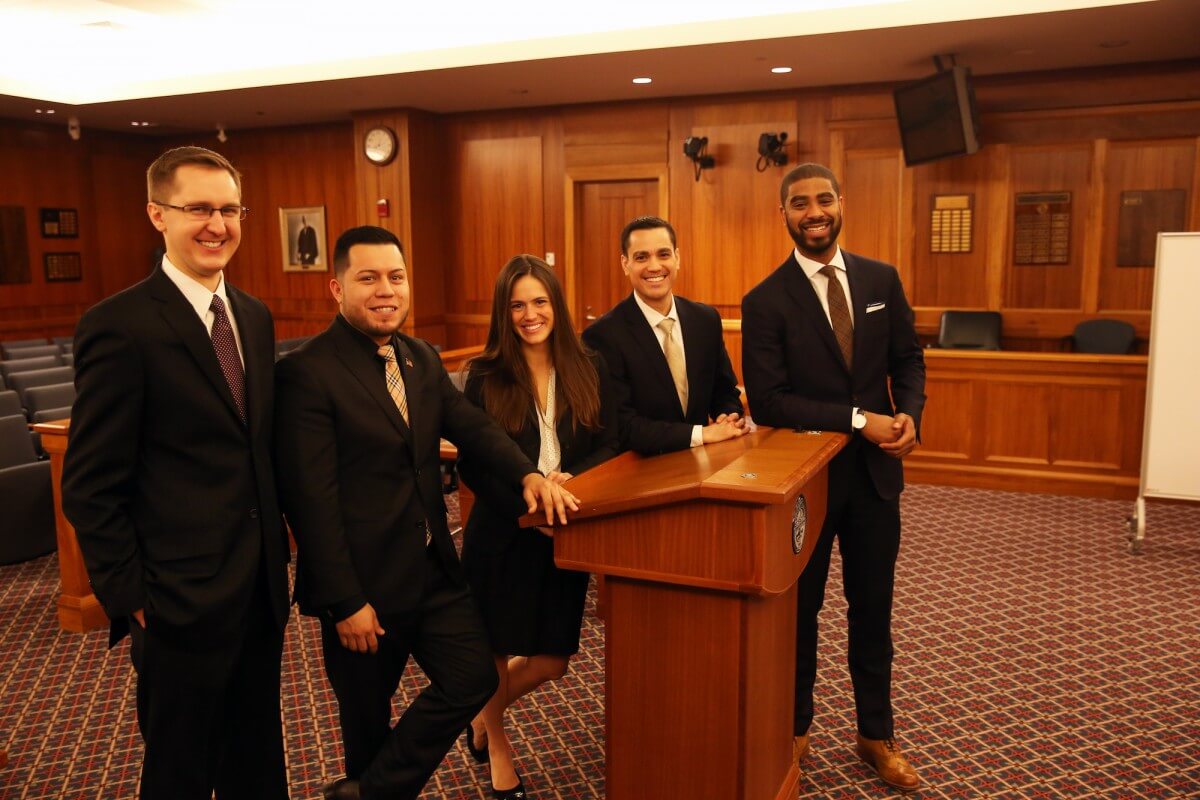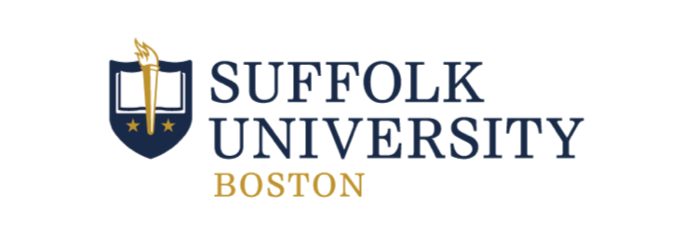The decision to pursue graduate legal education in the United States is likely to be one of the most important investments of your lifetime.
With hundreds of LL.M. programs to choose from, students are seeking those that allow them to stand out in competitive legal markets.

Source: Suffolk Law
In US News & World Report’s 2019 “Best Law Schools” rankings, Suffolk Law landed a top 20 position in all four legal skills specialties—clinics, legal writing, trial advocacy and dispute resolution. It represents one of only two law schools in the US to have achieved this feat and the sole institution with all four legal skills specialties ranked in the top 20 for three consecutive years. Suffolk’s IP program is ranked number 32 in the country.
It was the school’s focus on practical knowledge and Suffolk’s excellent rankings that made Hyndavi Metta, an LL.M. student from India, decide to apply.
“Students are presented with real-world problems and taught the problem-solving skills to identify and find the best solution for the client. It is this high-quality education, which distinguishes Suffolk’s faculty’s teaching from traditional, lecture-based classroom learning. One of Suffolk’s best assets is the law faculty, who are experts in their fields and are supportive teachers in the classroom,” says Metta.
Metta was attracted to Suffolk Law’s LL.M. in Global Law and Technology, one of the few LL.M. degrees in the US where students may earn two specializations in up-and-coming fields, like Intellectual Property and Information Technology Law, International Law and Business, and Biotechnology and Health Law.
Real lawyering from the get-go
Located in downtown Boston, Suffolk Law’s location in the center of the finance, government and commercial areas allows students to complete more than 400 externships, enroll in 10 in-house clinics, spend 16,000 hours pursuing pro bono legal work, and compete in 17 regional and national trial tournaments on a yearly basis.

Marty Cachapero. Source: Suffolk Law
A successful graduate of the general Master of Laws, Marty Cachapero, was one of them.
For four months, the Filipino student interned at a medium-sized law firm in downtown Boston, assisting partners and associates in legal research and case records management. Cachapero also shadowed associates appearing before the Massachusetts Appeals Court.
“To have worked in a law firm in the US is something that I will proudly hold onto throughout my legal career. And Suffolk Law made this possible for me, most especially through the help of Bridgett Sandusky, Assistant Dean of Graduate Law Programs,” Cachapero said.
Short as the stint was, it imparted many important lessons and tips on how to become a successful partner, lawyer, negotiator and mentor. Cachapero is an attorney-at-law back home today, as well as a lecturer in Public International Law in one of Manila’s law schools.
“All these lessons…always come in handy in my law practice, as a partner of a law firm, as a government attorney for a water irrigation agency, and as a professor of law in the Philippines,” he said.
Essential building blocks for an effective legal outlook
Jan A Laskowski, 33, is a judge in Germany. Close to a decade ago, Laskowski was an LL.M. in Global Law and Technology student at Suffolk Law, attending high profile panel discussions and professional opportunities at the US Federal District Court of Massachusetts through the Federal Judicial Observation Program.
He credits these programs, coupled with the “robust intellectual life” the school provided, for giving him the crucial skills he uses as part of the German judiciary today.
The global methodology used by faculty in many of his classes, says Lakowski, helped him develop the essential skills that he uses daily in his work as a judge.
“I think my time at Suffolk Law gave me both legal tools and more importantly, the mindset to understand where some of the parties from other countries come from, allowing me to tackle issues more effectively.”
His impressive career is a testament to Suffolk Law’s global approach to legal education.
Career focus at Suffolk
Here, law students have access to a robust array of resources, such as the Professional and Career Development Center (PCD), where dedicated career counsellors assist students in securing internships during the LL.M. program and positions after the LL.M. if students choose to remain in the US for Optional Practical Training – a 12-month trainee period.

Conor Boyle. Source: Suffolk Law
Conor Boyle, 34, made the best use of available resources when he was an LL.M. in Global Law and Technology, specializing in International Law and Business at Suffolk. Boyle was able to secure a sought-after summer internship at Holland & Knight LLP with the direct support of a faculty member and PCD.
“The reputation of Suffolk Law graduates is phenomenal within the city and opens several doors and windows of opportunity for you to utilize,” Boyle said. With over 23,000 law school alumni around the world, students and graduates are able to tap into a ready-made global network. Originally from Ireland, Boyle’s legal career has spanned the globe, from Boston to Hong Kong to London, UK.
From the start, the law school’s qualities – superb teaching philosophies, diverse student body, genuine international exposure – impressed Boyle, he said, making it easy for him to pursue his studies here.
He has no regrets today, considering his LL.M. has been such a benefit to his professional and private life:
“Suffolk Law not only educates you in the relevant subject matter, it teaches you how to think, how to act and how to conduct yourself in a wide range of circumstances. These qualities are engrained in my daily professional and private life from negotiating contracts with governments and global financial institutions to purchasing a home.”
“Suffolk Law prepares you for life.”
Follow Suffolk Law on Facebook, Twitter, YouTube and Instagram
Liked this? then you’ll love…
Boston’s Suffolk Law: Influencing the innovation economy
Why Boston is the ideal place to unleash your legal potential











